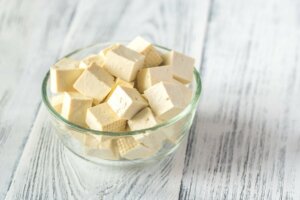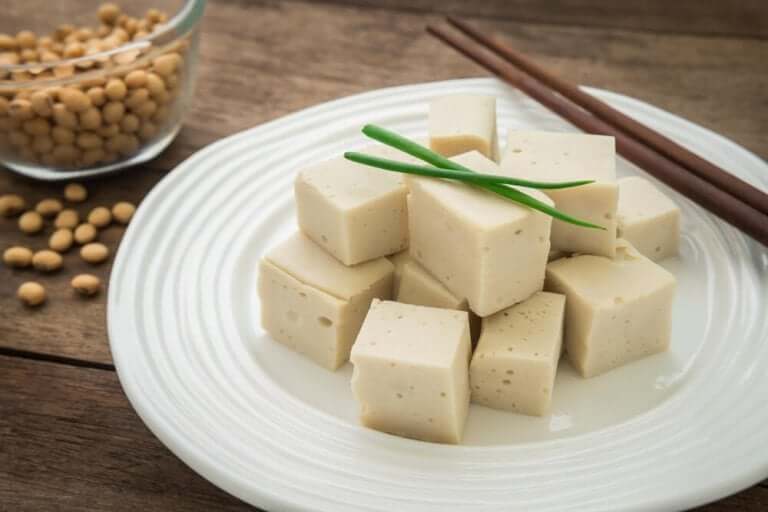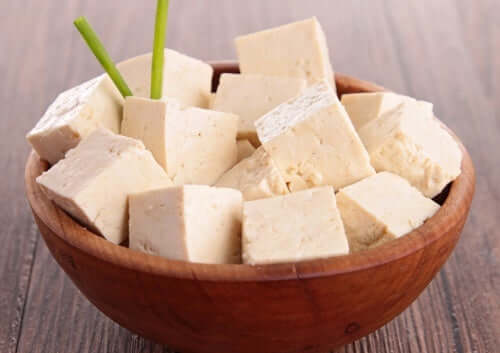Varieties of Vegan Cheeses and Their Benefits


Written and verified by the nutritionist Eliana Delgado Villanueva
Have you ever tried vegan cheese? Do you think it could have more benefits than milk derivatives? Then read this article and we’ll tell you more about the varieties of vegan cheeses.
Vegans are people who don’t eat meat or any animal products. This means that they don’t eat milk and milk derivatives, eggs or any other animal products.
What is vegan cheese?

Cheese is a very popular food. There’s a huge variety and endless options to choose from. However, many people have had to stop eating it because of medical conditions, like lactose intolerance or allergies to milk protein.
On the other hand, other people have opted for a lifestyle without dairy products, such as vegans, whose numbers have increased in recent years at a global and local level.
The traditional types of cheeses we know are made from casein, a type of milk protein from animals such as cows, goats, and sheep. During production, a group of enzymes that an animal’s stomach produces, known as rennet, is added to milk.
On the other hand, vegan or vegetable cheeses are made from plants, usually organic, and involve the consolidation of protein mass from different plant sources, such as soy, solidified vegetable oils, nutritional yeast, and grains.
As this type of cheese doesn’t undergo the natural maturation process of proteins, it doesn’t have the same flavor profile as a dairy cheese that has been matured.
Benefits of consuming vegan cheeses
As we have seen, vegan cheeses have their characteristics that make them different from animal cheeses. But, also, they have several outstanding benefits that make them an ideal food to include in any type of diet.
- The great benefit of these products is that they have a much lower amount of cholesterol and fat than animal product alternatives. This reduces the risk of developing obesity, diabetes, heart problems, and some types of cancer.
- For proteins, vegan cheeses contain 0.03 to 0.07 ounces of protein per serving. So, it’s a good source of protein.
- Another of the outstanding benefits of eating vegan cheeses is its high content in minerals, such as phosphorus and potassium, which are very necessary both for the correct functioning of the nervous system and for the maintenance of our muscles.
You might want to read: Healthy vegan cheese with oregano
3 large groups of vegan cheeses

The first is made from tofu which is also called vegan cheese. It’s just fermented soy. This fermentation gives an appearance of fresh vegan cheese with a high protein level.
Then, there are cheeses based on coconut fat and starch (usually potato). These cheeses get the characteristic texture of animal cheeses.
And finally, there are cheeses made from nuts. The two most commonly-used nuts are cashews and almonds. As a disadvantage, it’s very difficult to mask the flavor of cashew or almond, but if you ignore this fact, you’ll have very original flavors.
Varieties of vegan cheeses
In Spain, the variety of animal cheeses is innumerable, with more than 200 options. Vegan cheeses have been with us for only a few decades, but the varieties are growing. Below is a list of vegan cheese varieties you can taste:
- Grated Parmesan cheese
- Vegan mozzarella cheese
- Vegalloumi, cheese to eat hot
- Vegan cheddar cheese
- Smoked vegan cheese
Where can you find them?
Vegan cheeses are on sale in “vegan-friendly” food stores and health and ecological food stores, as well as in vegan fairs and restaurants.
Finally, if you want to make yourself a delicious vegan cheese, below we tell you how to do it.
All cited sources were thoroughly reviewed by our team to ensure their quality, reliability, currency, and validity. The bibliography of this article was considered reliable and of academic or scientific accuracy.
- Rojas Allende Daniela, Figueras Díaz Francisca, Durán Agüero Samuel. Ventajas y desventajas nutricionales de ser vegano o vegetariano. Rev. chil. nutr. [Internet]. 2017 [citado 2019 Feb 14] ; 44( 3 ): 218-225. Disponible en: https://scielo.conicyt.cl/scielo.php?script=sci_arttext&pid=S0717-75182017000300218&lng=es. http://dx.doi.org/10.4067/s0717-75182017000300218.
- Brignardello J, Heredia L, Ocharán MP, Durán S. Conocimientos alimentarios de vegetarianos y veganos chilenos. Rev Chil Nutr 2013; 40(2): 129-134.
- Guyomarc’h F, Nono M, Nicolai T, Durand D. Heat-induced aggregation of whey proteins in the presence of K-casein or sodium caseinate. Food Hydrocolloids. 2009;23(4):1103-1110.
This text is provided for informational purposes only and does not replace consultation with a professional. If in doubt, consult your specialist.








